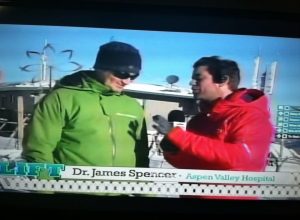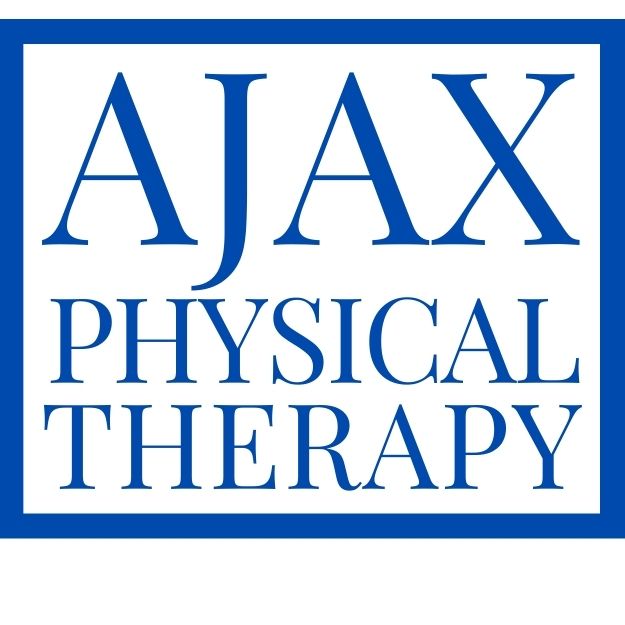On my very first travel assignment, almost 8 years ago, I quickly started appreciating parts of PT that I never thought I would be working in or ever need to recall from the most doodled-on pages of my college notes. But, there I was, 6 months into my career – that I had originally intended to be as a professional sports PT – and I was standing by a whirl pool doing debridement on a homeless guy. Alex, an experienced PTA with a crazy amount of passion for Physical Therapy, had recently taught me the ins-and-outs of the simple wound care we were performing and why we were doing what we were doing. On this first travel assignment, I was also baptized into the world of prosthetics. Alex taught me about shrinking the stump and different techniques for wrapping and making simple adjustments to the prosthesis itself. Alex was a neat guy who took a “non-traditional” path to being a PTA and was one of my best early mentors. Along with Alex, there was a handful of PTs with varying degrees of experience who were all willing to help me through my first travel assignment. Me, Non-Traditional PTA Alex, and a few other PTs were conquering all the issues of the good blue collar people of Lowell, Massachusetts – and were definitely not doing professional sports PT. The funny thing is, I enjoyed it. Prosthetics was a cool field. Wound care wasn’t anything I cared for, but it was different and new. I even got some early ER experience and found some excitement in the mayhem I would find every time I walked through those doors – cops, crooks, drunks, and broken parts of all kinds. I ended up spending 10 months in Lowell getting some quality mentoring and all kinds of experience in a wide spectrum of PT. This was the first place I experienced the kind of place where you treat “whatever walks in the door” (or rolls in the door), it certainly would not be the last. After a few contract extensions, I triumphantly left that assignment, nearing a year and a half of PT experience under my belt – I knew it all, nothing could surprise me now!
[Just something to listen to while you read – enjoy! About Kaunakakai, where we currently live.]
I’m somewhere around 20 travel assignments now – I’ve worked in about 30 clinics. It amazes me that I have learned something significant and useful on every single assignment. My new knowledge on each assignment comes from both the things my bosses and co-workers are doing well and the things that could be done better. Much of the time, I’m learning something positive directly from colleagues who have become specialists in their own unique mixture of whatever walks in their door. Often my education is purely experiential in working with a new population, a new culture, or in a new setting – home care, inpatient rehab, private practice, acute care, hospital outpatient, ER. There is just so much variety of what you can do with PT and how you can deliver it. At the end of every assignment I make a note of what I may have learned and confidently think, “Now I’ve seen it all, I can’t possibly see something at my next assignment that I haven’t seen before.” I’m being a little sarcastic here, but seriously, after a while, there can’t be too many surprises left… right!?
I knew on this current assignment I would have to be a true generalist and pull from many different parts of my skill-set. On this island, there’s no OTs, no SLPs, no nothing other than one other PT working at a community health center up the road. To really up the anti, there’s just absolutely no where else to find any specialists, there is open ocean between us and anybody else – referring out to someone more equipped for a particular job isn’t an option. We are essentially the only option for whatever ailment you can dream up. I took a phone call last week from a case manager in the large hospital system we are a part of. The main hub of this system is over in Honolulu, and there are many smaller community hospitals throughout the islands that are a part of this health system – although, I can’t imagine any one of these small community hospitals being any smaller or more isolated than Molokai General Hospital (MGH). Anyways, this case manager in Honolulu was wanting to send a Molokai resident back home but wanted to make sure we had both PT and OT for her referral. I explained to her that we do not have an OT here at the hospital and there are absolutely no OTs on the entire island, but that we are used to filling many roles and can handle the patient. The case-manager seemed unimpressed with a reply of, “OK. Thank you,” and hung up. After the call, I realized that in a way, I am fulfilling a very Molokai role. Nobody expects to have every resource available on Molokai, but many people fill multiple roles and help the community as best they can by wearing many hats. Many employees in the hospital have their main role, but then serve an adjunct role as the as infectious disease coordinator, or employee health director, or any other job title you can picture being a full-time position in most hospitals. A funny sidenote: I was talking with someone who was one of 3 employees of the local paper, a transplant to Molokai. She described how word got out that she was decent with computers, and people (mostly older people) started showing up with their computer issues at the newspaper office for her to help. People here don’t expect to have every amenity or service, but they help each other out however they can.
Kate and I have enough years experience behind us in enough different settings that we are able to confidently carry out the vast majority of our responsibilities. At MGH we cover inpatient, outpatient, ER, and SNF (14 beds in the hospital – 7 rooms). We are serving as hand therapists, neuro PTs, the Ortho Specialists that we actually are, and essentially work in the role of rehab specialist on every condition from the age of 1 to 100 with only modest resources. We have a surprisingly great clinic, gym, and staff, but are routinely having patients order equipment they need online – there is a local pharmacy, but it’s pretty limited in the DME department. Kate has taken on the wound care, and while I appreciate having learned some about wound care in the ol’ days with Alex, I’ll pass, thank you. My learning experience on this assignment was revealed to me early on when I realized all the additional roles I would be filling:
Social worker – Kate and I both worked our butts off last week to get 2 SNF patients discharged. We called family members, called outside services, and essentially fully arranged and negotiated these patients’ discharges. Kate even went to her patient’s house to help her transfer out of her car and into her home. Not what you would call billable hours, but good work that achieved great results.We are also a part of a team that is charged with delivering a decision on whether or not to admit SNF patients. The list of variables to consider is huge, since to even get here as a SNF patient, you are typically flying commercial on a puddle jumper. Also, you have to be thinking discharge ahead of admission – there’s no home therapy services, there’s no long-term nursing home, there’s no assisted living. If a person can’t ride a commercial flight with a nurse or be expected to discharge home – they shouldn’t be admitted in the first place.
There are no surgeons. When someone cannot or will not go off island for an Orthopaedic or other surgical consult, we are the next best thing. The PCPs, many of whom we have gotten to know well in a short time, are quick to refer anybody with an ache, pain, or movement dysfunction to us for more specific diagnosis and treatment. We are determining weight bearing status for acute fractures, managing follow-up appointments, and suggesting when someone might need additional imaging. It’s a unique experience to be working with a patient that you know should have surgery, but that off-island surgery is just not a realistic option in his world. I could write another entire blog about performing PT in reality – treating within people’s financial limits, having realistic/sustainable goals for patients, knowing when someone has reached their own individual ceiling of health. When a guy shows up needing a metal plate in his ankle, but that metal plate is a plane ride away that he’s not going to take, that’s when some real-world PT is needed and when we need to decide what the best conservative treatment option is for the patient.
I do feel well equipped for this assignment that requires a wide range of skills and a certain depth of knowledge. I would not recommend this assignment for anyone without a few years experience across a few settings. It’s nice to be in an environment where we get to use a full range of our skills as PTs. Most of the time PTs will work in a setting that sees only a very small slice of the full scope of practice. Sports and ortho is still my bread-and-butter, but I have gained a lot of skills and knowledge in other areas over the years. When I am back in Colorado in the winters, I work for a hospital that practices orthopaedics at a very high level. The patients with various sprains, strains, and fractures are handed down from a team of Orthopods and ER docs that absolutely nail their diagnoses. It’s a nice luxury, but to be honest, my diagnostic skills atrophy severely in the winter from disuse. As I’m bending and straightening joints all day, patients ask , “You had to go to school for 7 years for this?” I defensively explain how making their knee bend is only a very small part of what I learned in school and that PTs are trained across a large variety of diseases and dysfunctions. But, back here, I’m using every last bit of those diagnostic skills and every ounce of my education across a very broad spectrum of pathologies. The health community here may not have specialists or surgeons, but to be as comprehensive as possible, everyone else must work their role to its limits. It’s fun, challenging at times, and definitely a new learning experience.


 Note: I have included a lot of links in this piece and there is a ton of information beyond this article through those links. If you are a new grad therapist looking into travel, take the time to explore these links. Some are other pieces about new grads traveling, some are about professional development, and some are conversations on the discussion board that are pertinent. Note 2: I’m going to write this post using “Physical Therapist” language, but I believe this topic applies to speech and occupational therapists as well. I feel passionately about this particular post and found myself getting bogged down in language trying to be more inclusive of all therapists – so, forgive me, I really mean all therapists, but as a PT, I just write more gooder when I can write in the terms most familiar to me.
Note: I have included a lot of links in this piece and there is a ton of information beyond this article through those links. If you are a new grad therapist looking into travel, take the time to explore these links. Some are other pieces about new grads traveling, some are about professional development, and some are conversations on the discussion board that are pertinent. Note 2: I’m going to write this post using “Physical Therapist” language, but I believe this topic applies to speech and occupational therapists as well. I feel passionately about this particular post and found myself getting bogged down in language trying to be more inclusive of all therapists – so, forgive me, I really mean all therapists, but as a PT, I just write more gooder when I can write in the terms most familiar to me.






